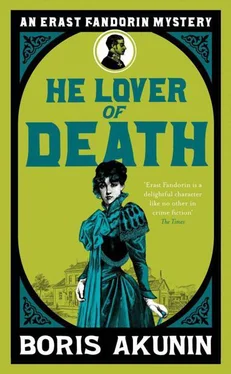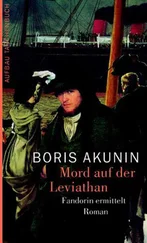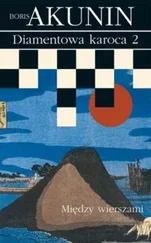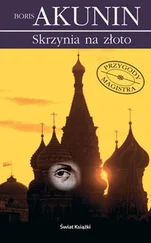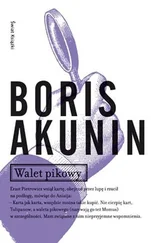As they flew across Red Square, down Vozdvizhenka Street and along Arbat Street, Senka’s belly kept rumbling so bad he could have gone running to the lav. But later, after they clattered across the bridge, the sickening fear suddenly turned to jauntiness, like when Senka was a kid and his father took him to the Shrovetide Carnival that first time, to ride down the icy wooden slides.
The Bosun was merry right from the off and kept cracking jokes. Ah,’ he said, ‘Sebastopol, I’ll meet my moll.’ And again: ‘Ah, Poltava, what a palaver.’ Or else: –Ah, Samara, we’ll be there tomorra.’
He knew lots of different towns, some of them Senka hadn’t even heard of.
The hotel was a drab-looking place, like a workers’ bunkhouse. The lights were all out before ten – trading folk went to bed early, and it was market day tomorrow.
They drove through to the railway depot and jumped out. They didn’t talk, they didn’t need words now – everything had been talked through in advance.
Senka took the reins and steered the three carriages side by side, wheel to wheel, with the Bosun’s rig in the middle. Then he handed the Bosun all three reins. The horses wouldn’t play up with him, they were smart. When they sensed strength, they stood still and didn’t stir. And the Prince’s horses were special, miraculous – nothing could catch horses like that.
So there was the Bosun, sitting on the box, puffing on his long pipe, and Senka didn’t know what to do with himself; he paced down the street, then back up the other side. He wasn’t scared any more, just limp and fed up. He felt pretty useless.
He ran to one corner, then another, to check whether there was any need to scram. Not a thing, it was all quiet.
‘Uncle Bosun, what’s taking them so long?’
The Bosun took pity on the sixer. ‘All right,’ he said, ‘why should a healthy young lad like you be hanging about back here? Run and see how the job’s going. Take a look, then come back and tell me how they finish off the Kalmyks.’
Senka was surprised. ‘Can’t they just take the money? Do they have to finish them off?’
‘That depends how much there is,’ the Bosun explained. ‘If there’s not a lot of crunch, only a few hundred, you don’t need to finish them off, the coppers won’t look too hard. But if there’s thousands, it’s best to do them in. A merchant will offer the coppers a big reward for his thousands, to make sure they sweat real hard. Off you run, Speedy, don’t you worry none. I’ll manage here on my own. Ah, I’d go myself, like a shot, if I had any legs.’
Senka didn’t need to be told twice. He was so tired of just hanging around, he didn’t even go in through the gate, just climbed straight over the wall.
When he walked into the big hallway he saw a man in a long coat lying there on the counter, squealing in fear. He had his hands over his head, and his shoulders were shaking. Lardy was standing beside him, yawning, with his fiddle in his hand (that was what bandits called a devolvert: a fiddle, a bludgeon or a chanter).
The man on the counter said in this feeble voice: ‘Don’t kill me, gentlemen. I didn’t look at you, I closed my eyes straight away. Go easy on me . . . please? Don’t take my life – I’m a family man, a good Orthodox Christian, eh?’
Senka answered, playing the big man: ‘Don’t you worry. You won’t twitch much – we’ll take pity on you.’
Then the man said to Senka. ‘Curious? Go on, then, have a gander. They’re taking their time over it.’
There was a collidor. Long it was, with doors in a row on both sides. Maybe was standing at the near end, and Surely at the far end (or the other way round, Senka still found it hard to tell the brothers apart). They had fiddles too.
‘I came to have a look,’ Senka said. ‘Just a quick peep.’
‘Be my guest,’ said Maybe (or it could have been Surely), flashing his white teeth in a smile.
Just then, one of the doors started to open. He slammed it shut with his foot and barked: ‘Come out here and you’re for it!’
Someone wailed behind the door: ‘What are you doing, you fooligan? I have to get to the lav.’
Maybe hooted with laughter: ‘Puddle in your pants. But you kick up a racket, and I’ll shoot through the door.’
‘Holy God,’ gasped the voice behind the door. ‘Is it a hold-up, then? I won’t bother you, lads, I’ll be quiet.’
And the bolt rasped shut.
Maybe started giggling again (it was probably Surely after all – he was always grinning from ear to ear). He pointed with his devolvert to a half-open door halfway down the collidor: That’s where it is.
Senka walked over and glanced inside.
He saw two men tied to chairs – they had swarthy skin and narrow eyes. One was really old, about fifty, with a little goatee beard, a pair of good plaid trousers, and a silk waistcoat with a gold chain dangling out of the pocket. He had to be the horse-trader. The other one was young, without any beard or moustache, with a calico shirt hanging over his trousers – he was definitely the right-hand man.
The Prince was striding to and fro between the two men, waving his flail through the air.
Senka opened the door a bit wider – so where was Deadeye, then?
He was doing something really strange: he’d taken that pen of his (a foil, it was called) out of the cane, and was shredding the feather mattress on the bed with it, scattering fluff and feathers in the air.
‘Can’t think where else,’ said Deadeye. ‘Where could our friends from the steppe have concealed their porte-monnaie ?’
The Prince sneezed – the fluff must have got up his nose.
‘All right, Deadeye, don’t get in a sweat.’ He stopped in front of the foreman and grabbed hold of his hair with one hand. ‘They’ll spill the beans. Right, Yellow-face, are you going to blab? Or would you like to chew on this iron apple here?’
And he swung the flail in front of the foreman’s face (which wasn’t yellow at all, it was as white as chalk, as if it had been dusted with the stuff).
Deadeye stopped lashing his blade about and sprinkled some powder on his fingernail (candy cane, Senka guessed). As he threw his head back, Senka winced – now he’d start sneezing even worse than the Prince! But Deadeye wasn’t bothered, he just squeezed his eyes shut, and when he opened them again, they’d turned all wet and shiny.
The Kalmyk foreman licked his lips – they were as white as his mug – and said: ‘I don’t know . . . Badmai Kekteevich doesn’t tell me.’
‘Right, then,’ said the Prince with a nod. He let go of the foreman’s hair and turned to the horse-trader. ‘Well, Goat-beard? Shall I chop you into little pieces, or are you going to talk?’
The horse-trader seemed like a tough old nut to crack. He spoke calmly and his voice didn’t shake: ‘I’m not so stupid as to keep my money here. I went to the market office today and put it in the safe. Take what there is and leave. This watch is gold. And there’s money in the wallet. Enough for you.’
The Prince looked round at Deadeye, who was standing there, smiling at something. He confirmed the story.
‘That’s right. There is a safe at the horse market and the traders put their money in it for safe-keeping, so it won’t get stolen and they can’t binge it all away.’
Senka saw the trader and his man glance at each other, and Badmai fixed his eyes on something on the floor. Ah-ha! One leg of the foreman’s chair was pressing down on a floorboard, and its edge was sticking up. The foreman shifted a bit and the floorboard fell back into place.
The trader’s wallet was lying open on the table. The Prince took out the banknotes and rustled them.
Читать дальше
